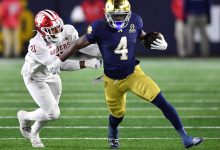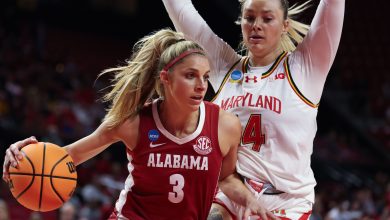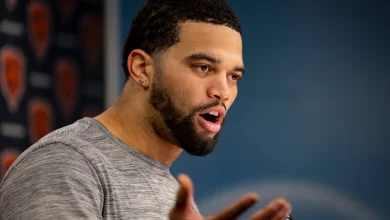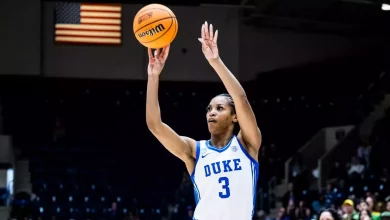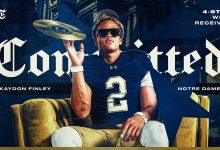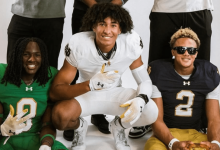Georgia Bulldogs Coach Kirby Smart Speaks Out to Paul Finebaum on NIL and the Future of College Sport
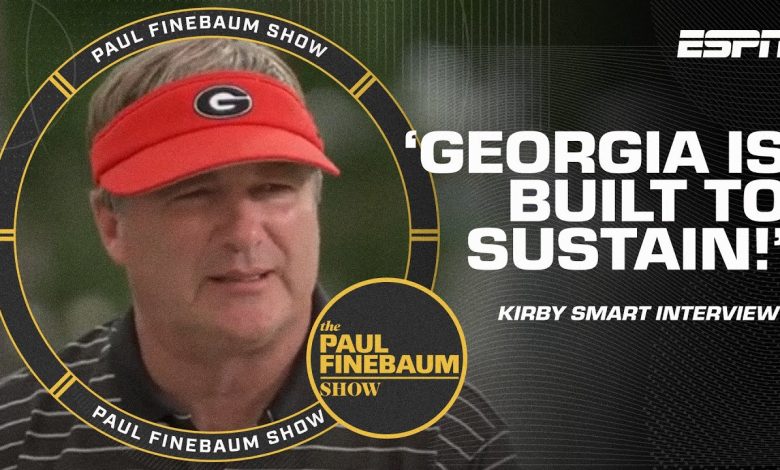
In a highly anticipated conversation on ESPN’s “The Paul Finebaum Show,” Georgia Bulldogs head coach Kirby Smart shared his candid thoughts on the growing influence of Name, Image, and Likeness (NIL) deals and how they are shaping the future of college sports. For years, Smart has been at the forefront of college football’s evolution, both as a coach and as a staunch advocate for the sport’s traditional values. However, the introduction of NIL deals, combined with an increasingly complex landscape of college athletics, has raised questions about the direction of the game. Smart, never one to shy away from tough conversations, did not hold back during his interview with Finebaum.
The Changing Landscape of College Sports
NIL — the ability for student-athletes to profit from their personal brand — has fundamentally altered the way college sports are structured. While college athletes have always been highly visible, the advent of NIL has allowed them to capitalize on their fame in ways never before possible. Deals range from social media endorsements to personal appearances, allowing athletes to profit from everything from local businesses to multinational corporations.
While NIL has been heralded by many as a long-overdue advancement in athlete compensation, it has also created significant challenges. These changes have introduced a sense of imbalance within the college sports ecosystem, with wealthy programs often having an advantage in attracting top-tier talent. For coaches like Smart, NIL is not just a new layer of compensation for players; it’s a new reality that requires careful navigation.
In his conversation with Paul Finebaum, Kirby Smart was forthright about the growing challenges NIL presents, particularly as it pertains to the structure and integrity of college sports. He pointed out that while the concept of players being able to profit off their own name, image, and likeness is an important step forward, the manner in which these deals are being structured has created new hurdles for teams and coaches.
The Impact of NIL on Recruiting
One of the central points Smart addressed during the interview was how NIL is affecting the recruiting process. As one of the top recruiters in college football, Smart knows better than most how important recruitment is to building a championship-caliber team. In recent years, however, NIL has shifted the dynamics of recruitment, particularly among top high school players.
Smart expressed concerns over how some programs have used NIL to gain a recruiting advantage, turning the process into a bidding war rather than a competition based on team culture, development, and fit. For schools with deep financial resources, NIL offers a powerful tool to attract top players, often offering lucrative deals to incoming freshmen. This has led to increased competition between programs and created disparities between teams that have access to large NIL pools and those that do not.
“Recruiting used to be about a fit,” Smart said, “about a player’s character, the coach’s ability to develop them, and how they fit into a program. Now, NIL has introduced another layer that can overshadow the traditional process. Players are often more focused on which school can give them the best deal, rather than which school is the best fit for their long-term growth, both on and off the field.”
While Smart acknowledged that the idea of players being able to benefit from NIL is a positive development, he expressed concern over how the financial incentives are shaping recruiting decisions. He emphasized that NIL deals can, at times, distract from the overall educational experience and personal development that college sports should provide.
The Pressure on Coaches and Programs
Another significant issue Smart discussed was the pressure NIL places on coaches to navigate an increasingly competitive and complex environment. As head coach of one of the most successful programs in college football, Smart understands the importance of attracting top talent. But the evolving landscape of NIL has added a new layer of complexity to an already challenging role.
“There’s pressure on all of us,” Smart explained. “We have to manage the expectations of donors, boosters, and the players themselves. You can’t just focus on coaching anymore. There are so many off-field elements — including NIL deals, social media presence, and media obligations — that it can be overwhelming. Coaches are now expected to not only manage a roster of talented players but to also build relationships with businesses, agents, and outside entities to make sure that their players are compensated properly.”
Smart’s comments highlight the delicate balancing act that coaches now face. On one hand, they must continue to build championship-caliber teams by recruiting elite talent and developing their players. On the other hand, they must manage the financial side of the program, ensuring that their athletes receive the proper compensation through NIL deals while maintaining a cohesive team environment.
The added pressure on coaches to facilitate NIL deals — often through third parties and outside influences — has made it increasingly difficult to maintain control over the integrity of a program. Smart suggested that this new dynamic could lead to divisions within teams, as players who may have secured lucrative deals are given more attention than others, potentially disrupting team unity.
The Future of NIL: Challenges and Opportunities
As Smart discussed the current state of NIL and its impact on college sports, he also took a forward-looking approach, acknowledging that while NIL is still in its early stages, it will continue to evolve. He stressed that for NIL to be successful and sustainable in the long term, the NCAA, schools, and other stakeholders must find a way to ensure that it works in the best interest of student-athletes while preserving the integrity of college sports.
Smart proposed that one potential solution to the current challenges posed by NIL would be for the NCAA to implement more uniform regulations surrounding NIL deals. This would help level the playing field and ensure that every program operates under the same rules. He also emphasized that these regulations should focus on ensuring fairness, transparency, and accountability.
“We need to ensure that NIL isn’t just a tool for the highest bidder,” Smart said. “There has to be a system that works for everyone, not just the schools with the deepest pockets. Players should be able to benefit from their name and likeness, but we also need to keep the integrity of college football intact.”
For Smart, finding a balance between player compensation and maintaining the values of college sports is key. While he expressed support for athletes being able to profit from their NIL, he also made it clear that NIL should not overshadow the broader educational mission of college athletics. Smart believes that college football should remain a vehicle for personal and athletic development, not just an avenue for financial gain.
The Role of Coaches in the Evolving Landscape
Despite the challenges presented by NIL, Smart remains optimistic about the future of college football and the role of coaches. He emphasized the importance of maintaining strong relationships with players and ensuring that coaches continue to be mentors to the athletes they work with. He also noted that while NIL is changing the dynamics of college sports, the role of the coach in developing players as both athletes and individuals remains crucial.
“Coaching will always be about developing young men,” Smart said. “We have to make sure that our players are not only prepared to play at the highest level but also to succeed in life after football. NIL can never replace the value of hard work, discipline, and character that we instill in our players.”
In this sense, Smart’s philosophy on coaching remains rooted in the traditional values of college football, even as the landscape changes. He recognizes the challenges of NIL but believes that the core mission of college athletics — developing student-athletes and preparing them for success both on and off the field — must remain unchanged.
Kirby Smart’s conversation with Paul Finebaum shed light on the complexities of NIL and its far-reaching impact on the future of college sports. While Smart remains a strong advocate for athletes being able to profit from their personal brand, he also cautioned that NIL should be handled with care to avoid disrupting the integrity and values of college athletics. As college sports continue to evolve, it will be essential for coaches, administrators, and athletes to work together to ensure that the sport remains rooted in its traditional values while adapting to new realities.
For Kirby Smart, the future of college football may be uncertain, but his commitment to the sport’s core principles — hard work, character, and development — remains unwavering. As the NIL era continues to take shape, it will be up to coaches like Smart to navigate the changing landscape and keep college sports focused on what truly matters: the student-athletes themselves.

